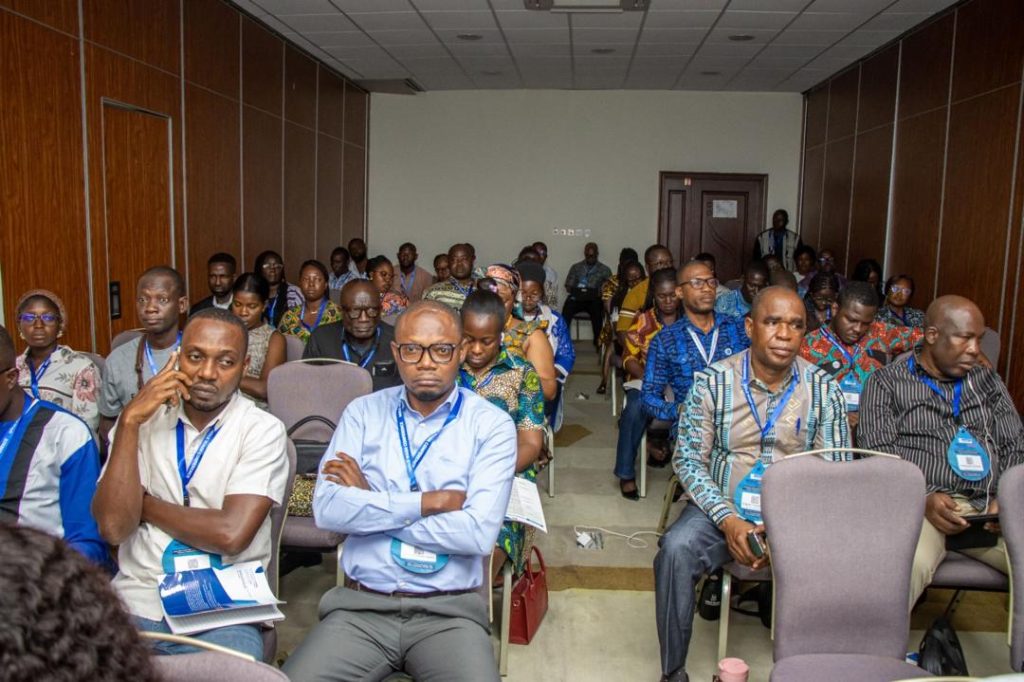By Florence Afriyie Mensah
Ho Oct. 09, GNA – Ms Charlotte Akwaah-Adjei, the Head of Capacity Building Team of the Greater Accra Metropolitan Area (GAMA) and Greater Kumasi Metropolitan Area (GKMA) Sanitation and Water Project (SWP), has called for culturally appropriate intervention to address negative beliefs about menstruation.
She said this was because, negative beliefs on menstruation were violating girls and women’s access to certain places, during that natural period of the female gender.
Ms Akwaah-Adjei who made the call, said girls needed to be empowered to overcome stigma, shyness and the belief that menstruation was a private matter that should be kept under secret.
Sharing the findings of a study on establishing the current knowledge level of in-schools adolescent girls on menstrual hygiene management at the ongoing MOLE 35 WASH conference in Ho in the Volta Region, she said negative beliefs violated girls and women’s access to certain places in some communities during menstruation.
Additionally, a significant proportion of adolescent girls were hesitant to openly discuss their menstruation concerns with their parents.
Speaking on the topic “Unveiling social norms and beliefs influencing menstrual hygiene management by menstruating adolescent in Ghana,” Ms Akwaah-Adjei, said it was important that girls were empowered to overcome stigma, associated with menstruation.
The four-day MOLE Conference, organised by the Coalition of NGOs in Water and Sanitation (CONIWAS) is being held on the theme: “Looking back on SDG Six Implementation in Ghana: Progress, Challenges and the Way Forward”.
The Greater Accra Metropolitan Area (GAMA) and Greater Kumasi Metropolitan Area (GKMA) SWP under the Ministry of Sanitation and Water Resources is one of the funding partners for the Conference.

Ms Akwaah-Adjei noted that the GKMA SWP documented responses from over 1000 in-school adolescent girls from 11 districts in the Ashanti Region in June this year, as part of the project’s objectives.
The study was targeted at establishing the current attitudes and practices of adolescent girls on menstrual hygiene management.
Again, it was to quantify, if any, social norms and practices that enhanced or inhibited good menstrual hygiene and develop management strategies that could bolster practices among adolescents.
Ms Akwaah-Adjei, said some respondents were not allowed to cook in their various homes during that time of the month, others were not allowed to get close to prayer altars, while others pointed out that, menstruating girls could not be used for rituals, among others.
The GKMA SWP project has therefore developed a guide for schools to enable girls to know about menstruation and be able to build on their stigma.
She said the study identified these gaps which proposed that education about menstruation really mattered and could change a lot of things positively if taken seriously.
GNA